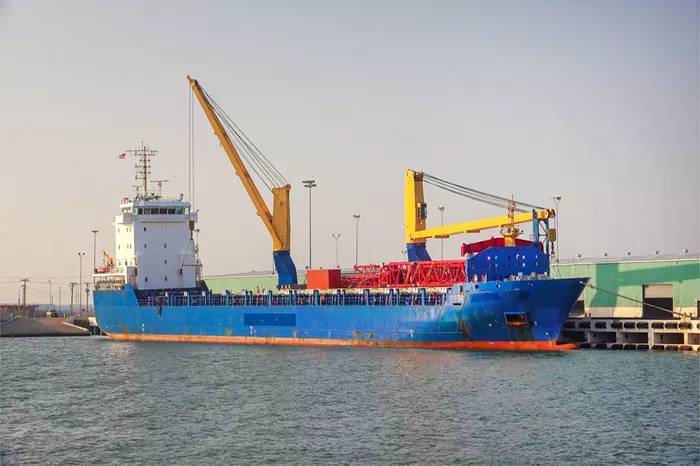The Port of Corpus Christi has ascended to become the world’s third-largest crude oil export terminal, as soaring U.S. oil exports boost shipping activity across the U.S. Gulf Coast. Ports in the region are now handling increased volumes of American energy exports, including crude oil, refined fuels, and liquefied natural gas (LNG), serving international markets.
Recently, the Port of Corpus Christi reported record-high volumes transiting through its shipping channel, driven by rising crude oil shipments. The port now accounts for over half of all U.S. crude oil exports and stands as the country’s leading LNG export hub. To accommodate growing traffic and facilitate the movement of very large crude carriers (VLCCs), the port is undertaking expansion and deepening projects, underscoring its role in “Moving America’s Energy,” as port officials put it.
Surge in U.S. Crude Exports
According to data from the U.S. Energy Information Administration (EIA), U.S. crude oil exports have surged to over 4 million barrels per day (bpd) in 2024, a stark rise from just 400,000 bpd in 2015. This exponential growth followed the repeal of a ban on American crude oil exports in late 2015, which had previously limited U.S. crude exports to Canada. Since the ban was lifted, U.S. crude oil has flowed freely into global markets, solidifying its place as a key commodity in international trade.
Recent months have seen record export volumes of U.S. crude, particularly West Texas Intermediate (WTI) Midland, with much of this supply heading to Europe. The Gulf Coast export terminals have played a critical role in supporting this boom, with midstream operators building pipelines across Texas and Louisiana to link U.S. energy supplies to global demand.
In a further sign of U.S. crude’s influence, WTI Midland was included in the Dated Brent benchmark in 2023, making it part of the Brent crude contract—one of the world’s most important oil pricing benchmarks.
Corpus Christi’s Role in Global Energy
Corpus Christi has been pivotal in enabling U.S. crude to gain prominence on the global stage. The port currently exports between 2.3 million and 2.4 million barrels per day of crude oil, with 99% of those exports destined for foreign markets. This marks a 17-fold increase in exports since the U.S. lifted its crude export ban, according to TJ Gonzalez, the port’s commercial and business development manager.
“It’s what has put us on the map, being the No. 3 export gateway for crude oil in the world,” Gonzalez told FreightWaves in a recent interview. Corpus Christi now ranks behind only Ras Tanura in Saudi Arabia and Iraq’s Al Basrah Oil Port.
Global Context: Ras Tanura and Al Basrah
Ras Tanura, the world’s largest oil export port, has the capacity to ship 6.5 million bpd of crude—equivalent to 7% of global oil demand. Located on Saudi Arabia’s eastern coast, the port can ship up to 9 million barrels of hydrocarbons per day, cementing its place as the world’s top crude exporter.
In Iraq, Al Basrah Oil Port ranks second globally, with a capacity of over 3.2 million bpd. Together with Ras Tanura, these ports handle a substantial share of the world’s oil exports.
Corpus Christi’s growing influence is reflected in its recent performance. The port reported record volumes in the third quarter of 2024, with crude oil shipments up 3% from the same period in 2023. The port also saw modest increases in exports of refined products, LNG, and dry bulk goods.
Continued Growth and Future Expansion
Through the first nine months of 2024, the Port of Corpus Christi moved an average of 2.4 million bpd of crude oil, a slight increase from the 2.3 million bpd recorded during the same period in 2023. Kent Britton, CEO of the Port of Corpus Christi, credited continued investments in maritime infrastructure for the port’s sustained growth and strong customer base.
Looking ahead, port authorities expect the final phase of the Corpus Christi Ship Channel Improvement Project to be completed by early 2025. This project, once finished, will create the most improved waterway along the Gulf Coast, stretching from Texas to Florida. The channel will be deepened to 54 feet and widened to 530 feet, facilitating faster and more efficient vessel traffic.
Notably, the upgrades will reduce sail times from the port’s inner harbor to deep water to just two hours, compared to the 8-hour sail times at other Gulf Coast ports. Gonzalez highlighted the competitive advantage this provides, stating, “Shipping agents prefer quicker turnaround times to ensure faster deliveries to the next destination.”
As Corpus Christi’s capacity continues to expand, it is well-positioned to cement its status as a key player in the global energy market, driving growth in U.S. crude exports and supporting the nation’s role in international energy trade.
Related topic:
Can You Get Carbon Monoxide Poisoning From Fuel Oil?

